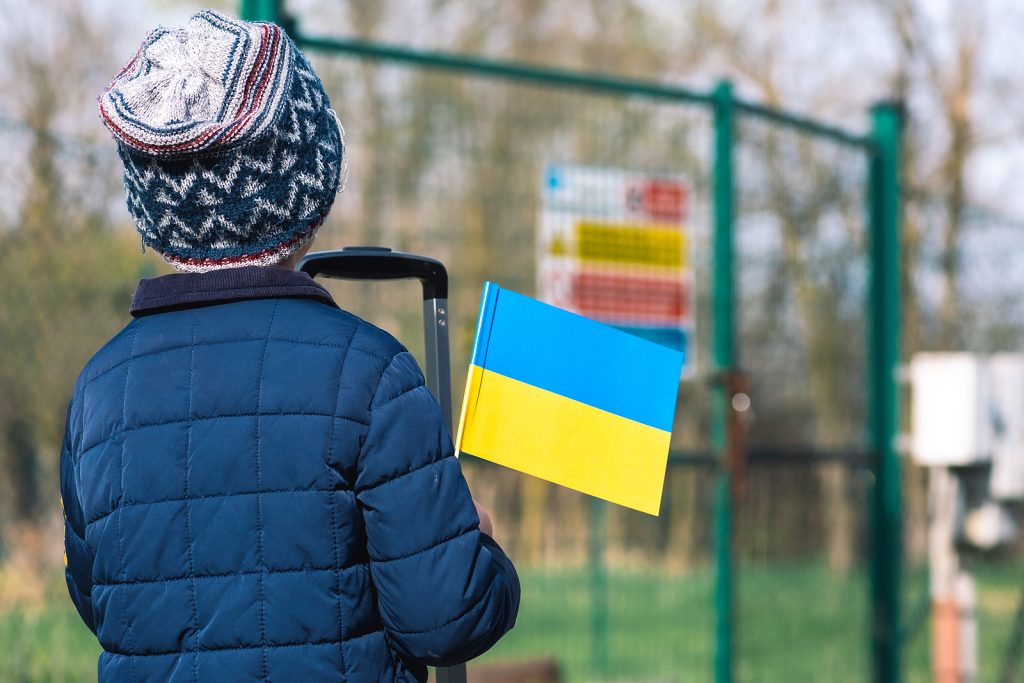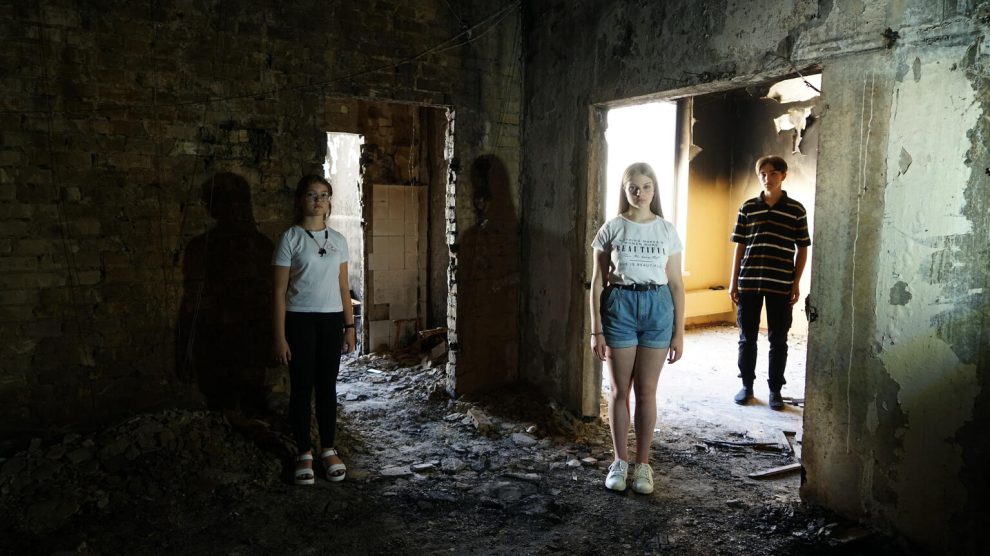Children across Ukraine are showing signs of widespread learning loss, including a deterioration in learning outcomes of the Ukrainian language, reading and mathematics, warns UNICEF.
Inside the stations of the Kharkiv metro, in northeast Ukraine, preparations are currently being made for the new school year, which begins on September 1. Makeshift classrooms are being created in halls and corridors in order to offer schoolchildren at least a semblance of normality.
Kharkiv must cope with Russian attacks almost daily, and air raid warnings are a constant presence in the lives of its inhabitants. According to Maria Avdeeva, a Ukrainian journalist, “[the metro] is the only safe location.”
- Ukrainian morale remains strong
- Is enlargement back on the EU agenda?
- It’s not just Ukraine. Russia occupies territory in other countries in emerging Europe
According to UNICEF, children across Ukraine are showing signs of widespread learning loss, including a deterioration in learning outcomes of the Ukrainian language, reading and mathematics, as the war, preceded by the Covid-19 pandemic, have left students facing a fourth year of disruption to their education.
According to the latest survey data, up to 57 per cent of teachers report a deterioration in students’ Ukrainian language abilities, up to 45 per cent report a reduction in mathematics skills, and up to 52 per cent report a reduction in foreign language abilities.
School is more than a place of learning
UNICEF also points out that in times of crisis or war, schools provide far more than a place of learning. They can provide children who have already endured loss, displacement and violence with a sense of routine and safety, a chance to build friendships and get help from teachers.
They can provide access to vaccines, nutrition and services to support children’s mental health and well-being. Adolescents are particularly sensitive, as the natural physical and mental vulnerabilities of their age are exacerbated by disruption of learning and distress that they experience.
In Ukraine, however, enrolment data reveals that only one-third of children of primary and secondary age enrolled in school in Ukraine are learning fully in-person. One-third of enrolled students are learning through a mixed approach of in-person and online, and one-third are fully learning online.
While online learning can complement in-person learning and provide a short-term solution, it cannot fully replace in-person classes, which are especially critical for social development and foundational learning among young children, warns UNICEF, which adds that Ukraine’s ongoing education reform, which seeks to develop the competencies of children and young people, is critical to the country’s future socio-economic recovery and development.
“Inside Ukraine, attacks on schools have continued unabated, leaving children deeply distressed and without safe spaces to learn,” says UNICEF Regional Director for Europe and Central Asia Regina De Dominicis.
“Not only has this left Ukraine’s children struggling to progress in their education, but they are also struggling to retain what they learnt when their schools were fully functioning.”

Refugees
For Ukraine’s refugee children, the beginning of another uncertain academic year also approaches, with more than half of children from preschool to secondary school age not enrolled in national education systems across seven countries hosting refugees.
Pre-schoolers and secondary-age students are the most likely to miss out on their education.
Language barriers, difficulty in accessing school, and overstretched education systems are among the reasons for low enrolment rates, says UNICEF, which notes that refugee children who are not enrolled in local schools are likely attempting to study online, either via the Ukrainian curriculum or through other distance learning platforms.
Some refugee children, however, may have completely abandoned their education, the organisation warns.
Top photo © UNICEF/UN0691707/Hrom
Unlike many news and information platforms, Emerging Europe is free to read, and always will be. There is no paywall here. We are independent, not affiliated with nor representing any political party or business organisation. We want the very best for emerging Europe, nothing more, nothing less. Your support will help us continue to spread the word about this amazing region.
You can contribute here. Thank you.


